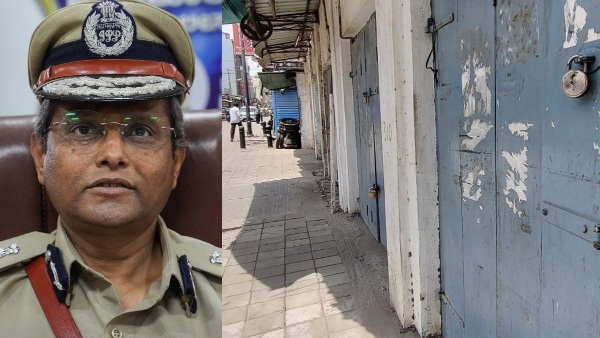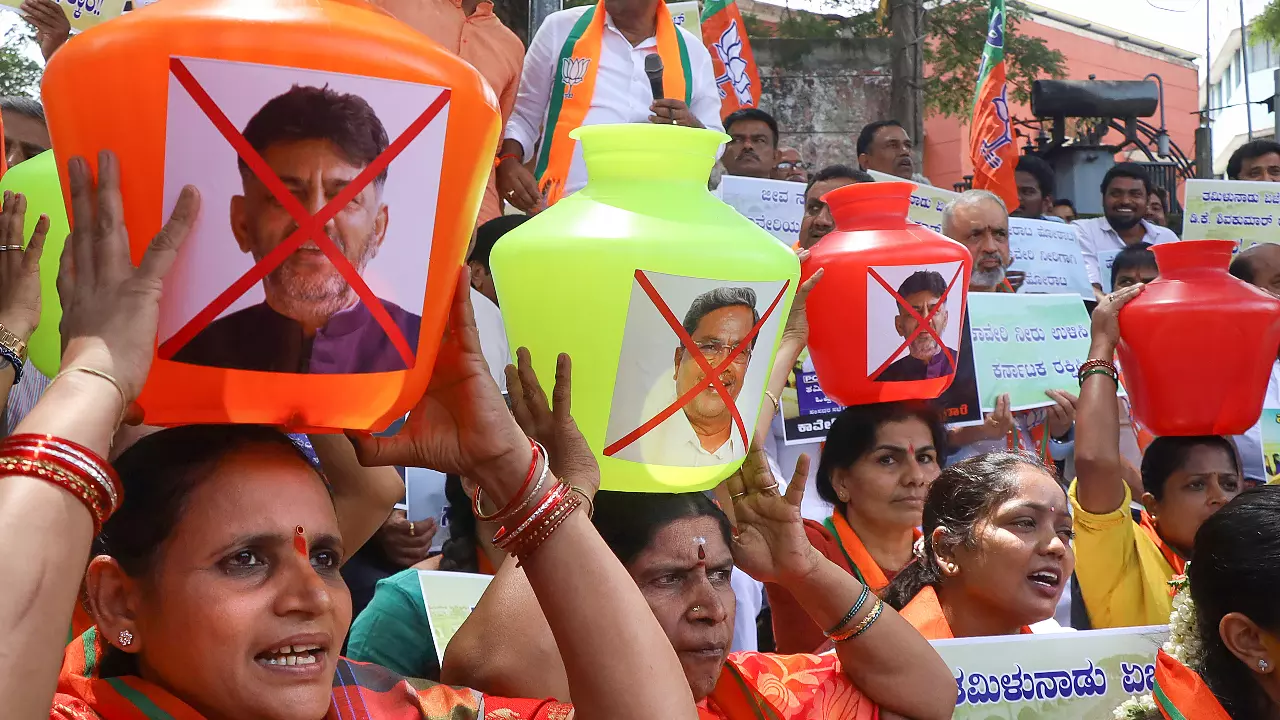Bengaluru Police Asserts: No Permission Granted for Tomorrow’s Bandh; Section 144 Imposed

Bengaluru Police Asserts: No Permission Granted for Tomorrow’s Bandh; Section 144 Imposed
Bengaluru, India – In a significant development, Bengaluru Police Commissioner B. Dayananda has declared that no permission will be granted for the proposed bandh in the city scheduled for tomorrow. The decision comes amid rising tensions surrounding the issue of releasing Cauvery water to Tamil Nadu. With a firm stance on maintaining public order and safeguarding the city’s peace, Commissioner Dayananda has issued a stern warning to the organizers regarding potential property damage.
Commissioner Dayananda, in a press conference held earlier today, emphasized the consequences that organizers of the bandh may face if they proceed with their plans. Furthermore, as a preventive measure, Section 144 of the Indian Penal Code, which prohibits the assembly of more than four people, will be imposed starting at 12 am on Tuesday.
The call for the bandh emerged as a form of protest against the release of Cauvery water to Tamil Nadu, a contentious issue that has long been a source of dispute between Karnataka and its neighboring state. While public demonstrations serve as an important platform for citizens to express their grievances and concerns, the imposition of Section 144 highlights the authorities’ commitment to maintain law and order, ensuring the safety and security of the city’s residents.

The decision to deny permission for the bandh has sparked a debate among various sections of society, with some arguing for the right to peaceful protest and others expressing concerns over potential disruptions and violence that may accompany such demonstrations.
Protesters advocating for the bandh argue that it serves as a potent expression of their frustration with the state’s decision to release Cauvery water to Tamil Nadu. They believe that Karnataka’s interests should be given precedence, particularly during times of water scarcity. The Cauvery river dispute has been a longstanding source of tension between the two southern states, often leading to protests and disputes.
However, the police commissioner’s decision to disallow the bandh has garnered support from those who prioritize maintaining public order and preventing damage to property. The potential for such protests to escalate into violence or result in damage to public and private assets has raised concerns among city officials, leading to the imposition of Section 144.
The imposition of Section 144, while limiting the right to assemble in large numbers, is a measure aimed at preventing any untoward incidents. It is expected to be in effect until the situation is deemed stable and non-disruptive to daily life in Bengaluru.

In the coming days, the city will closely monitor developments surrounding this issue, including the response of organizers to the denial of permission and the implementation of Section 144. Authorities have stressed the importance of peaceful and legal avenues for expressing grievances, urging citizens to refrain from engaging in any activities that could disrupt public peace and security.
As the debate surrounding the Cauvery water dispute continues to evolve, the decision to deny permission for the bandh reflects the delicate balance that authorities must strike between upholding the right to protest and ensuring the safety and well-being of the city’s residents. Bengaluru remains on high alert as it braces for potential developments in the wake of this decision.
As the tension escalates in Bengaluru over the denial of permission for the bandh, political leaders, and activists have weighed in on the matter. Various political parties have taken contrasting stances on this issue, using it as an opportunity to highlight their commitment to the interests of Karnataka’s residents. Some leaders have expressed support for the bandh, aligning themselves with the sentiments of those who believe that Karnataka’s water resources should be prioritized.
Conversely, other political figures have cautioned against the bandh, citing the potential for disruption and violence. They argue that peaceful dialogue and negotiations are the most effective means to address the complex Cauvery water issue, emphasizing the need to avoid actions that could further strain inter-state relations.
Meanwhile, civil society organizations have called for a measured and responsible approach to protest. They have urged organizers to seek alternative ways to voice their concerns, such as engaging in constructive dialogues with government representatives or utilizing legal avenues to challenge decisions that they find contentious. These organizations have emphasized the importance of peaceful protest and maintaining the city’s overall well-being.

In this atmosphere of uncertainty, residents of Bengaluru are left to contemplate the implications of the denial of permission for the bandh. While many support the right to protest and are sympathetic to the grievances of those advocating for Karnataka’s interests, they also hope for a peaceful resolution that does not disrupt daily life in the city. The decision to impose Section 144 reflects the authorities’ commitment to ensuring that any demonstrations, if they occur, are conducted in a manner that does not jeopardize public safety and security.
As the city awaits the outcome of this development, all eyes are on the organizers of the proposed bandh and their response to the denial of permission. The coming days will reveal whether alternative means of protest or dialogue will be pursued, or if the situation will take a different turn. Bengaluru remains a city in flux, grappling with the balance between the right to protest and the imperative to maintain law and order in the face of contentious issues like the Cauvery water dispute.




